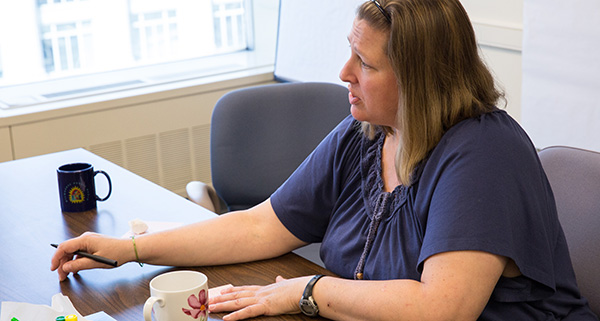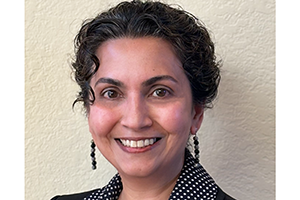
WUWM is the only Wisconsin radio station to receive the prestigious Edward R. Murrow Award for its “Project Milwaukee: Black Men in Prison” – a six-month series covering the incarceration of black males in Milwaukee.
Operated by the College of Letters & Science, WUWM is a member- and listener-supported station broadcasting locally produced news and music, as well as national and international programming from NPR, APM and BBC. The Radio Television Digital News Association announced the award on June 24. It is considered the equivalent of the Pulitzer Prize for broadcasters.
“What is particularly exciting is that this was a project that was conceived, and contributed to, by every one of our journalists and supported by our digital, marketing, and administrative team,” said WUWM General Manager Dave Edwards. “While it is a journalism award, everybody played a role.”
WUWM won the award for its series “Project Milwaukee: Black Men in Prison,” a topic inspired by a 2013 report on the extent of black male incarceration in Wisconsin released by John Pawasarat and Lois Quinn of the Employment Training Institute in the UWM School of Continuing Education.
“We were stunned by the numbers that showed that one in eight black men has been incarcerated at some point in Wisconsin. In Milwaukee County, I believe, half of the black men have been incarcerated,” said Ann-Elise Henzl, the executive producer of the “Project Milwaukee” series. “We wanted to dig into what the reasons were for this, what drove up these numbers; how the numbers impact the community at large, not just the individual and their families and neighborhoods; and then what the solutions would be to the problem.”
Henzl and WUWM’s staff created more than 60 reports that were broadcast during 2014, organized two community forums, and compiled an award-winning blog (morethanmyrecord.tumblr.com/) exploring the personal experiences of ex-convicts.
Quinn served as an expert panelist during one community forum and helped shape the course of the six-month series. WUWM also consulted with and interviewed David Pate, a professor in the Helen Bader School of Social Welfare, whose research mirrored its reporting.
“He goes into communities where there are a lot of men who are coming out of prison and he does small group discussions to find out the issues they face,” Henzl said of Pate.
One of WUWM’s triumphs was bringing together community leaders through its coverage to address black male incarceration.
“The discussion of black male incarceration was, I think, in some ways furthered because we kept reporting on it. It wasn’t just a story that you saw in the newspaper the day the study came out,” Henzl said. “Lois Quinn has told us that she believes that we really got the ball rolling in getting people to pay attention to the issue.”
Ariele Vaccaro, who graduated in 2015 with a bachelor’s degree in Journalism, Advertising, and Media Studies, interned at WUWM from January to May 2014 while she contributed to Project Milwaukee. She prepared a segment on how incarcerated fathers can connect with their children. It was an opportunity to learn about the journalism industry as well as make a difference in the city, she said.
“I learned that I as journalist I have a lot of influence over what people are hearing. The series brought to light what a lot of people in Milwaukee already knew in the back of their minds, that we have a problem with black male incarceration,” Vaccaro said. “I was just this junior who had never done an internship before, and I was stepping into journalism. It was eye-opening.”
Now an assistant editor at the Milwaukee Courier, Vaccaro credits her internship with WUWM and the skills she learned at UWM for her development as a professional journalist.
Henzl hopes WUWM’s reporting will continue to benefit Milwaukee.
“A lot of (listeners) told us that the reporting helped them make connections that they hadn’t made before in terms of understanding issues and making connections with the people that they met. They said they planned to work together on solutions to the problem,” Henzl said. “That was really rewarding, to think that some of the work that you’ve done has actually inspired change.”



